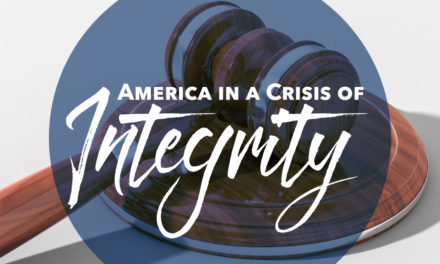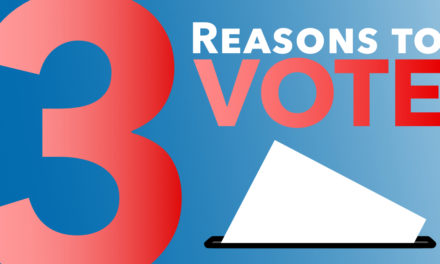Under inspiration, Paul wrote, “I exhort therefore that, first of all, supplications, prayers, intercessions, and giving of thanks, be made for all men; For kings, and for all that are in authority; that we may lead a quiet and peaceable life in all godliness and honesty. For this is good and acceptable in the sight of God our Saviour; Who will have all men to be saved, and to come to the knowledge of the truth” (1 Timothy 2:1-4). The passage takes on a special significance as one remembers that Paul was Nero’s prisoner in Rome.
The Scripture explicitly states God desires “all men to be saved, and to come to the knowledge of the truth.” Thus, the prayer “for all men” and “all that are in authority” implies praying for the salvation and spiritual growth of everyone, including civic leaders. As the focus turns to political leaders, the Scripture exhorts believers to pray specifically: “for all that are in authority; that we may lead a quiet and peaceable life in all godliness and honesty.” When Paul wrote these inspired words, the rulers were not godly people. Still, this is how Paul exhorted God’s people to pray. Pray for national leaders so that their leadership and public policy allow God’s people to love and serve God unhindered. This directive is explicit. Yes, pray for the salvation of political leaders, but if the leaders themselves are not godly, pray that the leaders allow for Christians to live godly.
Implicitly, this admonition informs us how to vote in an election. We should vote for those whose leading and decision-making would afford quiet and peaceable lives in all godliness for Bible-believing Christians. History tells us of many ungodly leaders who led in a way that allowed Christians to live godly. The issue here is public policy, exalting decent public policy, and not the godliness or ungodliness of particular leaders. While it would be dishonorable to exalt vileness, it is another matter entirely to vote for good public policy—even when those who promote it lack personal godliness.
Sometimes we understandably struggle with voting for a less-than-ideal candidate, but at least we have the privilege of voting. First-century Christians did not. We must vote realizing we are responsible for the privilege God has given us. A few considerations may help us come to grips with what we have to work with and vote according to the principle implied in 1 Timothy 2:1-4.
The Conscience Factor
As Christians, we should “vote our conscience,” but it must be remembered that consciences can be taught incorrectly. A conscience is a gift from God, yet it can become insensitive if regularly trampled over or oversensitive if misinformed.
An oversensitive conscience sees all matters as either black or white and looks for perfection though we live in an imperfect world. While many things are clearly spelled out in the written Word, some issues are not as clear. Instead of black or white, these matters are gray, and God made it that way. If all things were either black or white, we would not need the Holy Spirit.
The principle of 1 Timothy 2:1-4 informs our conscience and teaches us how to handle less-than-ideal options. Vote for the best public policy agenda that would allow believers to live out their Christianity. I wish every election produced a viable, perfect candidate that could be embraced by born-again believers with hearts for God, but often our choice has to be made from a set of less-than-perfect options. This brings up a second consideration.
The Common Sense Factor
The liberal agenda has advanced greatly in recent years, and choosing another liberal president would be disastrous for those who desire to live “a quiet and peaceable life in all godliness and honesty.” It would mean a continuation of and perhaps more encouragement in the shedding of innocent blood called abortion. It would mean open borders and an inundation of liberal voters that would make any future conservative win nearly impossible on the national stage. It could mean a liberal majority in the Supreme Court which would empower a liberal interpretation of the law. This alone would threaten second amendment rights, as well as promote and/or impose elements of anti-God lifestyles on people without regard for personal convictions. Common sense says we can hardly afford for the national government to chart a liberal course for the next four years.
In the present presidential election, there are only two candidates with a legitimate chance of winning. Common sense knows this. To vote for a more ideal candidate, but one with no hope of winning, leaves the liberal candidate that much closer to victory in a vital election. In addition to the principle of 1 Timothy 2:1-4, the common sense factor informs the conscience factor so that in the name of conscience, one does not unwittingly do the unconscionable. In other words, to not vote at all or to vote in a way that leaves out the common sense factor, unwittingly promotes the liberal agenda. This should go against a well-informed conscience. I would not want it on my conscience to have helped facilitate in any way a liberal agenda that may ruin the future of America.
Also, the vice-presidential candidates ought to be factored into the decision to vote. Though unnecessary based on the principles we have just noted, yet when there is a born again believer with a good record on the roster, common sense again informs the conscience on how to vote wisely. In fact, the conscience factor alone should recognize the value of an excellent vice-presidential choice who not only promotes good public policy, but also knows the Lord and seeks to live godly. Good vice presidents do have influence, and, potentially, an elected vice president could become a candidate of prominence in a future run for the presidency.
I realize people do not see eye-to-eye on this issue. Good people do not always see eye-to-eye. That proves this is not a clear-cut, black-or-white issue. The fact is, I don’t always see eye-to-eye with myself because my perspective gets enlarged, and I don’t agree completely with my previous perspective. This is a part of maturing. If greater understanding enlarges your perspective and your desire really is for truth and what is best, then you must gladly embrace the new, enlarged perspective. Hanging on to the previous perspective would be small-minded.
Without trying to over-spiritualize matters, there is a truth regarding the Holy Spirit that is pertinent to this issue. He is practical. While it is true the Holy Spirit never violates the absolutes of the written Word, it is also true that He leads practically through the less-than-ideal options of life. This is abundantly clear in the principle of 1 Timothy 2:1-4, which God gave to the believers of the early church who lived with ungodly leaders, and it is true for us who sometimes have to do the same.
Ultimately, our hope is in the Lord and a God-sent awakening. However, this does not negate our opportunity and responsibility to vote in accord with the principle of 1 Timothy 2:1-4.

John Van Gelderen
Post Author












Thank you! Excellent perspective!
It is worth noting that VP Pence spoke, eloquently, at the Prayer March 2020.
Yes, glad you brought that up!
When you wrote, “Instead of black or white, these matters are gray, and God made it that way.”, I wondered whether it might be better to say, “…God permits it to be that way.” Certainly we have the joy of experiencing the Holy Spirit’s guidance through the vagaries of life, but the gray doesn’t come from the one who is “light, and in him is no darkness at all.”
Great point! Good precision !
As we turn from the sun, we see the gray of the shadow before us. We just need turn around and the lighted path is clearer. Whenever issues of the talk of “gray” comes up in the raising of my children and continues through their adult years, my go to passage is the parable of the sower.Christ leaves a spectrum of possible application of the word (seed). 6 types of effect. Hard hearted, choked, snatched away, 30, 60,100 fold increase. I have simplified it in this way. As we apply scriptures to our choices, we can do what is good,better,or… Read more »
Thanks Andy, good thoughts!
Amen to 1 Jn 1:5. I’ve been helped in difficult decisions by that very Word.
Thank you. God bless.
Spot-on exegesis and application at a time when it is definitely needed and in a manner that encourages reception.
Voting for a godless man is in no way godly.
Since neither candidate that has a chance at becoming president of the USA lives (from all appearances) what the Bible describes as a godly life, your comment seems like an idea that would lead godly people to withdraw from the body politic. Should people who seek godliness disengage politically?
No. I’m not saying that at all. But, as Christians following the man in office now is a blight to the faith.
You might say that “the faith” has been a blight to this country for what little impact believers have on it. What America needs most is akin to what it had the past: revival. Praying for that blessing and voting in favor of life and liberty seem like very godly things to do.
At the cost of our reputation? I am of this faith. A believer in and child of the Lord Jesus Christ, but I stand in shock of the body today.
I agree
It should be remembered that the point of the article is not voting for a man, but a principle. God used pagan kings to favor God’s people in Ezra, Nehemiah, and Esther. Some of these kings were personally wicked. But they ruled in favor of God’s cause. A vote for them (if they had elections) versus a wicked man who opposes God’s cause is the point.
Well said John! Keep pressing on! Prayer is essential for this election and for national revival!
I’ll agree to disagree.
Happy to do the same. Thanks for sharing your thoughts.
Withholding a vote due to a man/woman not being godly or moral enough on the surface seems reasonable. Yet, the more you dig into all the candidates, most of whom don’t profess Christ, you may find yourself without anyone at all to represent your interests in our government. I guess it could be considered a form of separation from the world, withholding your consent, not participating at all, letting God sort it out, like the Amish. How many who take this stance practice this level separation from the world in other domains of their life? Entertainment, TV, movies, music, professional… Read more »
In my case, I feel a sense of obligation and responsibility to vote for men who do not hate Christians and Christianity. Voting for those who would accommodate us, allowing us the freedom to worship God without persecution seems obvious. Some may not be godly but understand that treating Gods people well brings blessings to a nation. It happens over and over again in the old testament.